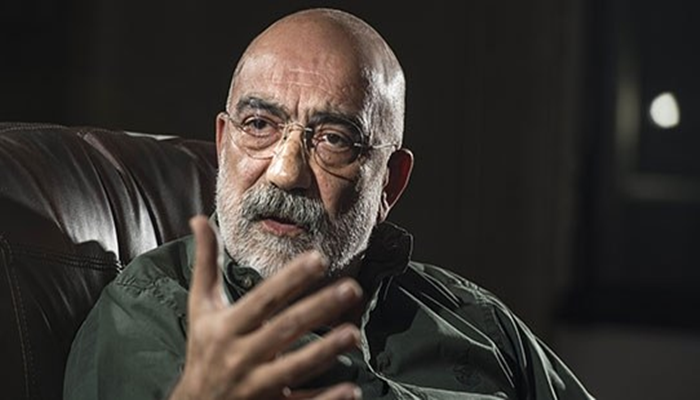Claudia Roth, vice president of the German Federal Parliament (Bundestag), has submitted a communication to UNESCO under a special procedure that it says allows it to investigate the violation of rights of Turkish journalist Ahmet Altan, who has been behind bars for more than 1,500 days, the T24 news website reported on Monday.
According to the report, after receipt of Roth’s July 23 letter, UNESCO asked for information regarding allegations that Altan was arrested in violation of the Universal Declaration of Human Rights and the International Covenant on Civil and Political Rights (ICCPR), an agreement that UNESCO claims gives it the competence to investigate such allegations.
UNESCO is expected to conclude its investigation in spring 2021, T24’s special report says, adding that the request for information by UNESCO emphasized the stalling on the part of Turkey’s Supreme Court of Appeals on Altan’s file, delaying his release.
Ankara is unfazed by the development, due to its lack of direct consequences, T24 says.
Altan, a prominent journalist and writer, was arrested shortly after a July 2016 coup attempt in Turkey. He was initially sentenced to life imprisonment in February 2018 for alleged links to Gülen movement, a faith-based group that is accused by the Turkish government of masterminding the coup attempt.
The movement strongly denies any involvement in the failed putsch.
Turkey’s Supreme Court of Appeals overturned the decision of the lower court that handed down life sentences to Altan and a group of other journalists who stood trial with him. Altan was a given prison sentence of 10 years, six months in a retrial on charges of aiding a terrorist organization, in early November 2019. He spent a total of 1,138 days in prison until his release on Nov. 4, 2019. He was re-arrested one week later.
Turkey’s top court has recently ruled that no rights violation took place in the re-imprisonment of Altan after it reviewed an individual application filed by the journalist.
The top court said an individual’s imprisonment following conviction and the imposition of a prison sentence by a court does not constitute a violation of the right to freedom and security.
According to T24’s report, Roth’s letter stressed that Altan’s rights were violated during his detention, arrest, trial, appeal, application to the top court, his re-arrest after release and his time in Turkey’s notorious Silivri Prison.
The communication by Roth underlined that despite the exhaustion of all domestic and international remedies, no positive result has been achieved due to the lack of impartiality of Turkish courts because of ongoing political repression. It said UNESCO should hold Turkey responsible as the country is a party to the agreements it has violated in Altan’s case.
In 1978, the Executive Board of UNESCO laid down a confidential procedure for the examination of communications (complaints) received by the organization concerning alleged violations of human rights in its fields of competence, namely education, science, culture and communication. The procedure is set out in 104 EX/Decision 3.3 of the Executive Board.
The purpose of the procedure is to seek “a friendly solution” to cases brought to UNESCO’s attention, it claims.
Dozens of critical journalists were arrested in Turkey in the aftermath of the failed coup in July 2016 under the pretext of an anti-coup fight.
One of the leading jailers of journalists in the world, Turkey was ranked 154th out of 180 countries in the 2020 World Press Freedom Index published by Reporters Without Borders (RSF) in April 2020.
